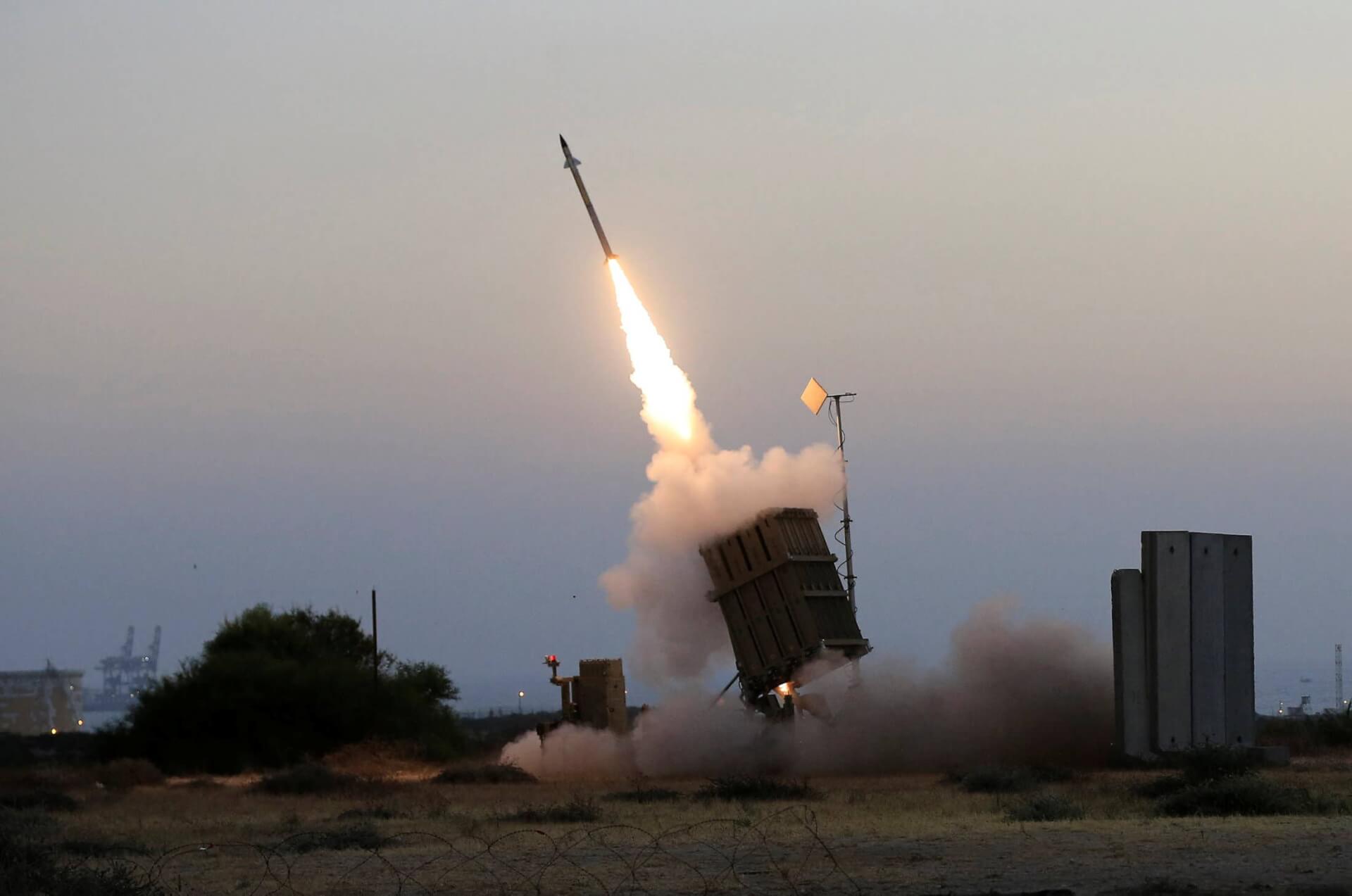Militants from the Gaza Strip launched 40 rockets into Israel over the weekend, after violent clashes between Israelis and Palestinians erupted in Jerusalem last week. While most of the projectiles failed mid-way, Israel’s Iron Dome air defence system was able to intercept the missiles that crossed over into Israeli airspace, with one landing in an open field near the security fence.
Israel responded to the rocket attack by striking Hamas targets in Gaza. Israeli Defence Forces (IDF) tweeted that it struck “terror targets” in the region, including underground infrastructure and rocket launchers. IDF chief Aviv Kohavi held a “situational assessment” at the military headquarters in Tel Aviv to “instruct a series of steps for possible responses and prepare in the event of an escalation of the current situation.” Israel also fully closed Gaza’s fishing zone to prevent fishermen from leaving the coast.
It was also reported that sirens blared throughout Israel as Israelis rushed for cover to rocket shelters, injuring few people. A branch of the al-Aqsa Martyrs Brigade and the Popular Front for the Liberation of Palestine (PFLP) took responsibility for the attacks and said that they were in response to the violence in Jerusalem. Israel, however, blamed Hamas for the escalation and warned the militant outfit of consequences if the situation escalates further.
Hamas spokesperson Abdel Latif al-Qanoa said that “Palestinian resistance forces in the Strip are ready to block any aggression” while adding that forces “support and identify with the Palestinians in Jerusalem.” However, sources told Haaretz that Hamas messaged Egypt saying that it was not interested in an escalation.
Tensions between Israelis and Palestinians exploded on Thursday after Israeli police barricaded large sections of the Damascus Gate near the Temple Mount in Jerusalem’s Old City, preventing Palestinians from gathering for Ramadan festivities. The situation spiralled out of control when protestors from Israeli far-right group Lehava started marching towards the Damascus Gate chanting “death to Arabs.” As a result, both sides engaged in violent confrontations, breaking months of calm in the West Bank. Israeli Prime Minister (PM) Benjamin Netanyahu’s office released a statement saying that Israel is “maintaining freedom of worship, as we do every year for all residents and for all visitors to Jerusalem.”
While the police responded quickly by arresting around 50 people from both sides, Times of Israel reported that officers were “quicker to act against Palestinians and used far greater force in doing so, including sponge-tipped bullets.” Over 100 Palestinians were injured during the clashes and sporadic protests emerged in the West Bank, particularly near the Qalandiya checkpoint north of the Old City.
Palestinians claim that the restrictions imposed on them were unfair and discriminatory, while Israeli protestors argue that the clashes were in response to a spate of attacks against Jews by Arabs. Both Israelis and Palestinians have been engaged in tit-for-tat strikes on each other, and videos of violence committed by people on both sides circulated on social media rapidly.
Earlier today, it was reported that security forces had removed all fences in an effort to ease tensions. Palestinians waved flags and cheered the removal of barricades, leading to minor scuffles with the police. While referring to the removal of obstacles around the Damascus Gate, a former member of the Palestine Liberation Organisation (PLO) Hanan Ashrawi said in a tweet: “Once again the courage and determination of Palestinian youth have prevailed over fully armed Israeli occupation forces in Jerusalem.”
United States (US) Department of State deputy spokesperson Jalina Porter on Friday said that the US is “deeply concerned about the recent escalation of violence in Jerusalem,” and called the hateful chants by far-right protestors “extremely disturbing.” Israeli actions were also condemned by Jordan and Iran. In a surprising move, the United Arab Emirates (UAE) also expressed concern over the situation and released a statement condemning “the acts of violence committed by right-wing extremist groups in the occupied East Jerusalem.”
The outbreak of hostilities, especially in Gaza, has raised fears of the situation exploding into a full-blown conflict. In this respect, United Nations (UN) Special Coordinator for the Middle East Peace Process, Tor Wennesland, said “provocative acts across Jerusalem must cease” while also labelling the rocket strikes on Israeli population centres a violation of international law. Wennesland further mentioned that “the UN is working with all concerned parties to de-escalate the situation.”
Gaza Militants Launch Rockets After Israelis, Palestinians Clash in Jerusalem
Militants from the Gaza Strip launched 40 rockets into Israel over the weekend, after violent clashes between Israelis and Palestinians erupted in Jerusalem.
April 26, 2021

SOURCE: HAARETZ
